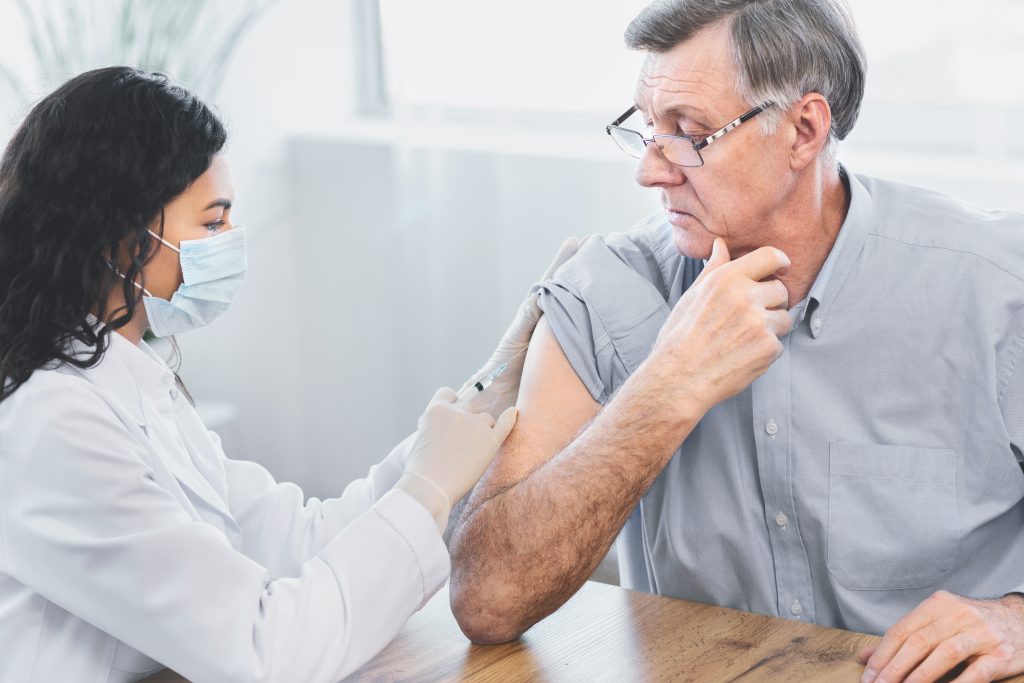Vaccination can help individuals lead a healthy life. Vaccines can protect people against various ailments, which can be mild or severe. But, it doesn’t mean that the risk of acquiring side effects from vaccines is non-existent. Nonetheless, most people shouldn’t acquire serious adverse effects from vaccinations. Still, it should be in your best interest to learn about the potential side effects of vaccines to help you prepare for the experience.

Potential Side Effects Of Vaccines
The Guillain-Barr Syndrome (GBS)
GBS is a neurological disorder that comes with symptoms, like vision problems, needle or prickling-like sensations, and coordination issues. Moreover, the signs of this disorder may differ for each patient. Some individuals might experience mild symptoms, like slight weakness, whereas others may experience near-complete paralysis.
People can acquire GBS through flu vaccinations, albeit the chances are relatively slim. Nonetheless, you should be aware that contracting this syndrome is still a possibility.
Other potential causes of GBS include:
- Surgery
- Zika virus
- Physical trauma
- Hodgkin’s lymphoma
- Epstein-Barr Virus
GBS doesn’t pick its victims as people of all ages are susceptible to this health complication. But it seems like adults are at a higher risk of contracting this syndrome than children. Hence, kids might be less susceptible to acquiring this syndrome if they receive vaccines at a young age.
Check out the following link for more information about this disorder: www.vaccineinjuryhelpcenter.com/flu-vaccine-guillain-barre-reactions-flu-vaccine/.
Pain And Swelling In The Affected Area
Many people might experience pain and swelling in the affected area after a vaccination. This discomfort should dissipate after a few minutes. But, it’s also possible that the pain and swelling (sometimes accompanied by redness) won’t disappear for extended periods.
This pain tends to come from muscle soreness in the location where the injection took place. Many people shouldn’t feel worried about this discomfort because this scenario is a sign that your immune system is working.
The pain and swelling after vaccination are a sign that your immune functions are creating and sending antibodies for potential viruses that may invade the fresh wound. Note that you can use home remedies if you find this particular discomfort too cumbersome.
One solution is to place a cold compress or cold cloth over the affected area. Conversely, you can also consume paracetamol to ease the pain.

Mild Fever
Fever might receive negative feedback from many people because this particular condition weakens the body. But, a fever isn’t a disease. Instead, it’s a sign that your body is trying to fight an illness or infection.
Harmful bacteria or infections can enter the wound where the vaccination happened. In turn, the body’s immune functions will try to stop the invading bacteria by sending antibodies to the affected area. Think of this setting as your body’s immune system working more diligently than usual. In turn, the body’s temperature rises, causing the fever.
Proper rest should be adequate to make the fever subside. Don’t forget to monitor your temperature regularly, as it shouldn’t go beyond 38.5 degrees Celsius (101.3 degrees Fahrenheit). Proceed to a medical establishment’s emergency room if your temperature rises beyond that figure.
Also, don’t forget to drink lots of fluids, preferably clean drinking water or milk. Keep your body cool, but don’t take cold baths or showers as dousing yourself in freezing water might aggravate the fever.
Anaphylaxis
Anaphylaxis is among the few severe reactions that might occur after a vaccination. This potentially life-threatening health condition is an allergic reaction that may come from vaccines.
This health issue causes the immune system to release various chemicals into different areas of the body, causing you to go into shock. Its symptoms may include the following:
- Itching and flushed skin (may include hives)
- Low blood pressure (hypotension)
- Weak yet fast heartbeat
- Dizziness
- Fainting
- Nausea or diarrhea
- Vomiting
If you’re experiencing any of these symptoms after a vaccination, you should seek an injection of epinephrine immediately. Then, travel to the emergency room quickly. Note that failure to treat anaphylaxis quickly can be fatal.
Thankfully, anaphylaxis is a preventable ailment. Start by telling your doctor for previous allergic reactions to vaccines. Also, ensure that the medical staff member giving you the vaccine has an emergency kit nearby.
Conclusion
Vaccinations can help prevent illnesses, like the flu, measles, and tetanus, to name a few. But, be wary as you might experience some adverse effects from the vaccine. It’s possible to prevent these adverse effects from happening by knowing about these results before the injection. Let this article help you understand the different side effects of vaccines to become prepared for what may come.
I’m a 20-something stay-at-home mother and wife. I have an amazing husband, a beautiful daughter, two loving dogs, and a lazy cat. I wouldn’t change my life for anything! I love to read, listen to music, cook and blog!

[…] News source […]